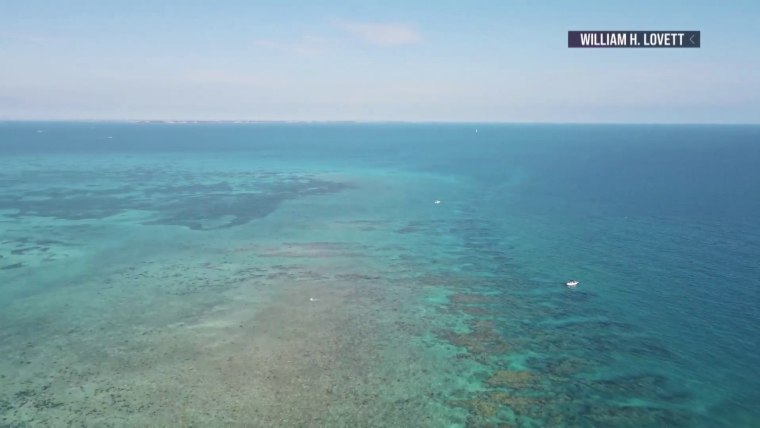I’ve only been to the beach once this year, despite my best efforts to the contrary. The North Atlantic can be still brisk even in early July. As I approached the water, I braced myself for a potential sting that never came. It turned out the water was almost 4 degrees warmer than it had been on the same day the year before.
That tracks when you realize that July was the hottest month ever in recorded history, and we’re likewise seeing oceanic temperatures hit worrying highs around the world. Off the coast of Florida, the water has hit 100ºF multiple times in last week, a temperature more suitable to hot tubs than the open sea. The unavoidable truth is that our oceans are warming faster than predicted, and it is beginning to feel like the hackneyed “frog in a slowly boiling pot” analogy for climate change is more apt than ever.
Fittingly, last week also marked the release of a study that warned that the warming Atlantic waters could portend a major meteorological shift in our lifetimes. The danger is centered on the Atlantic Meridional Overturning Circulation (AMOC), a system of currents that pulls warm water from the Caribbean tropics toward the North Atlantic. When that water releases its heat and cools, it sinks to the ocean floor where it’s drawn back south again. (That’s a different system than the Gulf Stream or the North Atlantic Current, which help control the climate of the southern U.S. and northwestern Europe.)
The AMOC has long been considered one of the most delicate potential “tipping elements” on Earth, where we could see sudden shifts or collapses in typical behavior. Its collapse would be a shift “as abrupt and irreversible as turning off a light switch, and it could lead to dramatic changes in weather on either side of the Atlantic,” as The Washington Post framed it. Previous analysis from the United Nations has estimated with “medium confidence” that we won’t see that happen this century. But a more recent paper, published in the journal Nature Communications on Tuesday, estimates the collapse to occur on average in the 2050s.
Things seem even more dire when you look at the other side of the Atlantic. The Mediterranean Sea, already in the midst of its hottest July ever, last Monday broke the record for the hottest the sea has ever been, hitting 83.6º F. As Scottish meteorologist Scott Duncan noted, usually the maximum temperature in the area is in August, so the record could still be broken again.
Meanwhile, the temperatures we’re seeing off Florida are a problem beyond the utter weirdness of the ocean feeling no more refreshing than standing in the sun. The rising heat is causing havoc on the ocean’s wildlife. Scientists on the Florida Keys are racing to save coral specimens taken from the third-largest coral reef on the planet and the only living barrier reef in the continental U.S. With the hottest part of summer likely still ahead, it’s not clear if the reef can handle that much sustained heat.
And more broadly, warm waters are less able to hold onto dissolved oxygen, meaning that the more the sea temperature rises, the greater the chance we begin to see mass die-offs of fish and other sea creatures literally drowning. We’re already seeing the kelp forests that form the base of temperate coastal ecosystems dying off thanks to the temperature increases. And hotter waters in the Arctic and Antarctic will affect the ice melt rate and how much the sea level rises over the next decades.
Yes, this is an El Niño year, where the Pacific jet stream’s shifts lead to warmer and more intense weather patterns — but that’s not the full story of what’s happening here. These temperatures wouldn’t be the same absent the effects of human-made climate change, given that the ocean has absorbed 90% of the warming thanks to a buildup of greenhouse gases in the atmosphere. The National Oceanic and Atmospheric Administration predicts that by September we can expect to see 50% of the world’s oceans experience heat wave conditions. “Without the warming effect” that NOAA has tracked in global oceans since 1991, “the models predict that only 25% of the global ocean will be affected by heat waves in September,” NBC News recently reported.
The warming of the waters promises to continue to be a growing threat so long as humans continue to contribute to the heating of our planet. There’s still time to calm the waters before it’s too late. But as things stand, we are coming dangerously close to hitting the “boiling seas” phase of our climate apocalypse.


